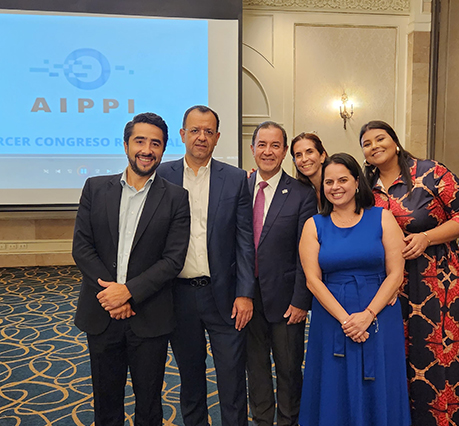– Advancing IP since 1897
AIPPI’s objective is to improve and promote the protection of intellectual property on both international and national bases. It pursues this objective by working for the development, expansion and improvement of international and regional treaties and agreements and national laws relating to intellectual property.
It operates by conducting studies of existing national laws and proposes measures to achieve harmonisation of these laws on an international basis. Where appropriate, AIPPI intervenes with submissions before major courts and legislative bodies to advocate for strengthened IP protection.
Have a look at the introduction video to discover more about the association.
Interested in joining the Congress? Discover the different sessions in the video below.
Members of AIPPI are individuals interested in intellectual property protection on a national or international level.
They include lawyers, patent attorneys, patent agents and trademark agents, as well as judges, scientists and engineers. They also include corporations.
AIPPI is organised into 66 National and 2 Regional Groups and membership is obtained by joining one of these Groups. In countries where no Group exists, membership is obtained as an Independent Member in the international organization.
The primary international bodies of AIPPI are:
- the General Assembly, in which all members have a right to participate, and which is responsible for adopting and modifying the Statutes;
- the Executive Committee, made up of Delegates of all of the Groups – around 300 in number; this is the principal decision-making body of AIPPI;
- the Council of Presidents, made up of the Presidents of the Groups plus a representative of the Independent Members;
- and the Bureau which directs the activities of AIPPI; it is formed of sixteen members including the President of AIPPI (who chairs the Bureau) and two Vice Presidents; the Secretary General and two Deputies who, with two Assistants, are responsible for administration and representation; the Reporter General and two Deputies who, with four Assistants, organize the substantive work of the Association; a Treasurer General who is in charge of financial resources.
The General Secretariat and its staff have an office in Zurich, Switzerland.
AIPPI has the following Statutory Committees: the Programme Committee which recommends to the Executive Committee the subjects for study; the Finance Committee which acts as an internal auditor; the Nominating Committee which proposes candidates for the various elective offices; the Membership Committee which acts as a bridge between the membership and the Bureau; the Communications Committee which disseminates information about AIPPI and its activities; and the Venue Selection Committee which proposes venues for future AIPPI annual meetings (Congresses).
A World Congress open to all members is held annually, in September or October. Normally, up to 2000 members attend with accompanying persons.
At a World Congress, pending Study Questions concerning international law are discussed and decisions taken on a consensual basis. At the same time, a World Congress serves as a forum for an Educational Programme, offering a Professional Development Programme with valuable educational sessions.
The Executive Committee convenes at each Congress. The Council of Presidents also meets annually during each Congress.
Other Online Meetings are held throughout the year on various topics, for example Young AIPPI Members, or law development in smaller jurisdictions.
There are further in-person meetings organised by the National Regional Groups, for example the yearly Trilateral Meeting of the AIPPI National Regional Groups France, Germany and Poland.
Naturally, all AIPPI meetings, at which IP issues are discussed and worked on in small groups and in plenary sessions, interspersed with social functions, provide an excellent opportunity for members to meet and build personal and professional relationships.

AIPPI publishes (electronically) the results of its substantive work in a Yearbook, prepared after each annual World Congress.
In order to keep the membership informed, the General Secretariat publishes a Newsletter minimum six times per year. It includes executive summaries of the most recent international developments as well as articles on administrative matters.
This website has become an indispensable tool for anyone interested in intellectual property. The Library, for example, contains all substantive Study Questions which are currently being considered, as well as those which have been considered since AIPPI’s founding in 1897. The website also includes information on international, regional and national meetings, along with a list of officers and committee chairs and members. The membership portal under Login includes exclusive information to members and hosts the membership directory.
Under the supervision of the Reporter General and the Chairman of the Programme Committee, AIPPI conducts its substantive work, namely, the study of issues of topical concern in the IP world.
Once the annual work programme is established, Study Committees are formed to study each pending Study Question (SQ). The Reporter General team prepares Guidelines which the Groups follow in preparing their individual Reports. The Reports are then synthesized by the Reporter General team into a Summary Report. These Reports and the Summary Report are the basis for the Study Committees in the preparation of Draft Resolutions which are then discussed at Congresses. When a consensus is achieved, a final Resolution (Plenary Approved SQ Resolution) is prepared for adoption by the Executive Committee. Over 700 Resolutions have been passed by AIPPI. With those Resolutions, AIPPI has had a major influence on the development of international IP Law.
AIPPI’s Resolutions are published in English, French, Spanish and German and sent to WIPO, WTO, Governmental and Non-Governmental Organizations, and patent and trade mark offices around the world.
The representatives of AIPPI act as its ambassadors, liaise with all important international Governmental and Non-Governmental Organizations and promote mutual coordination and cooperation. AIPPI has regular high-level contacts with international and regional institutions. In particular, AIPPI has annual meetings with the Director General of WIPO, enabling AIPPI to take account of WIPO’s proposals in AIPPI’s working agenda, as well as with major IP offices. Furthermore, AIPPI meets regularly with officers of other NGO’s to discuss issues of mutual interest. AIPPI endeavours to promote the development of national law in International Forums and Symposia and by direct consultation, in particular in developing countries.
These coordinated efforts for improving and harmonising IP protection at international meetings often lead to relationships beyond the purely professional, which in turn deepen mutual understanding across national borders.
Some important examples are as follows:
- Promotion of Revisions of the Paris Conventions leading to enormous improvement in the protection of industrial property during the 20th century.
- The establishment of the Trade Marks Law Treaty (which is the result of an AIPPI initiative).
- The passing of Resolutions (such as the test for the experimental use exception in patent law) which are cited as authority on what the law should be in some jurisdictions.
- Delegations of AIPPI are recognized as active participants in all major international and regional discussions on intellectual property law projects like Patent Law Treaty, European Community Patent Convention, Directive of the European Union on Biotechnology, the Hague Agreement and the Madrid Protocol, to mention just a few.
AIPPI strongly encourages young members to participate in the work of the Association. Young Members are defined as those who are aged 36 or below, and they benefit from a reduced fee in relation to membership fees, the registration fee for the AIPPI World Congress and the eligibility to join the Young AIPPI Forum (YAF).
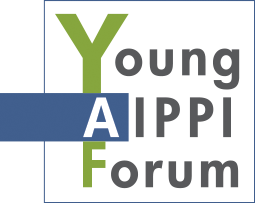
The YAF was first launched in 2017 during the Sydney Congress with an interactive session on networking in a multicultural environment. The aim of the session was to prepare younger members to take advantage of the AIPPI World Congress to meet other members from all over the world. This initiative continued in the following World Congresses. The YAF also provides a special space for Young Members to network with their peers, share experience and to build closer relationship with other members in their age group.
Best of Young AIPPI Activities 2023
Best of Young AIPPI Forum 2023
At the 2023 AIPPI World Congress, Young Members gathered in Babylon, an exciting networking location in Istanbul, Turkiye. The enthusiastic members followed a workshop about influencing and inspiring others. After the workshop, they could network while enjoying a wonderful cocktail.
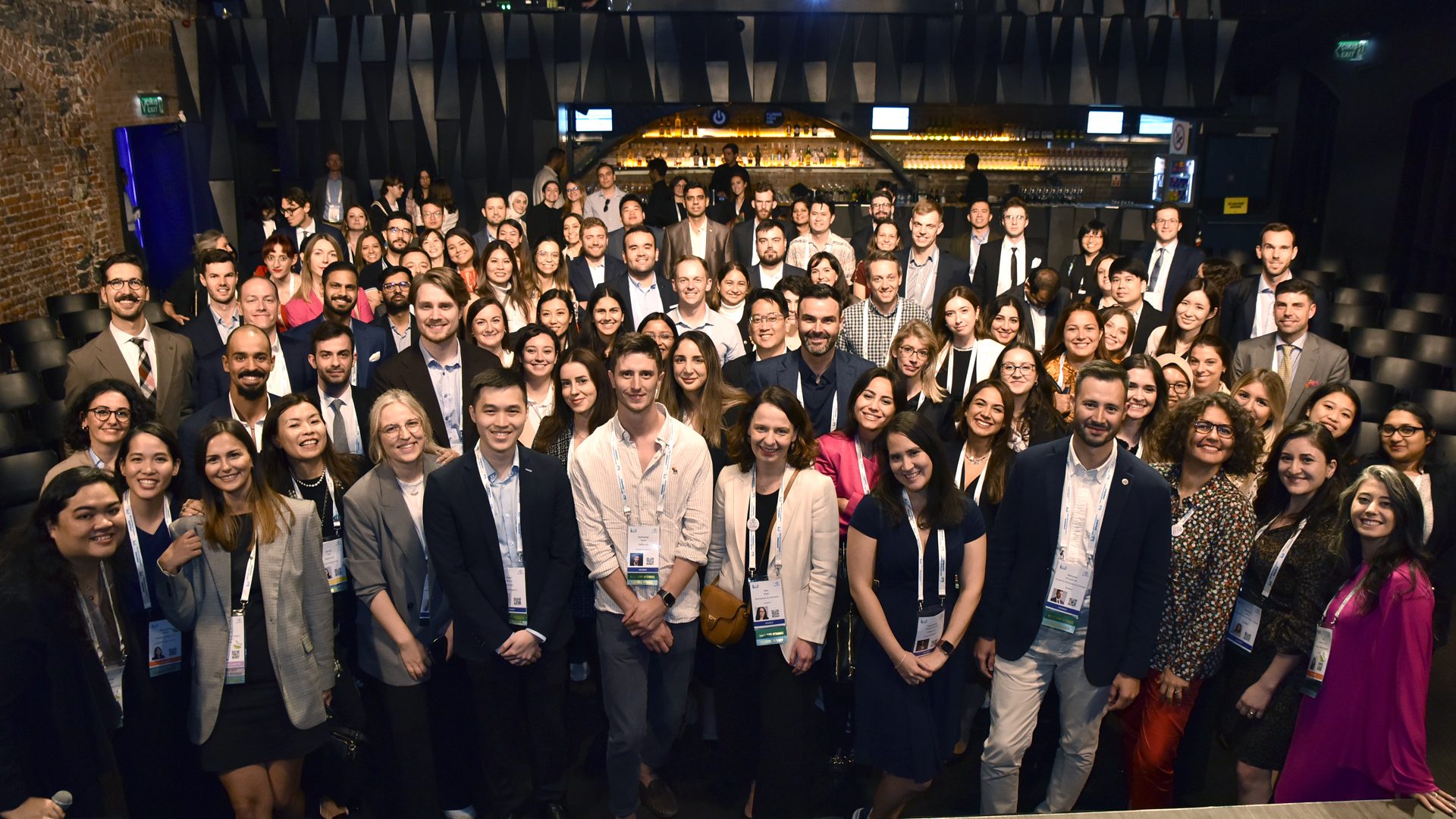
Best of Young AIPPI Activities 2022
Best of Young AIPPI Forum 2022
After two years of online YAF events, the session took place in-person during the AIPPI World Congress in San Francisco. The main purpose was to meet other young members, to exchange views and build connections.
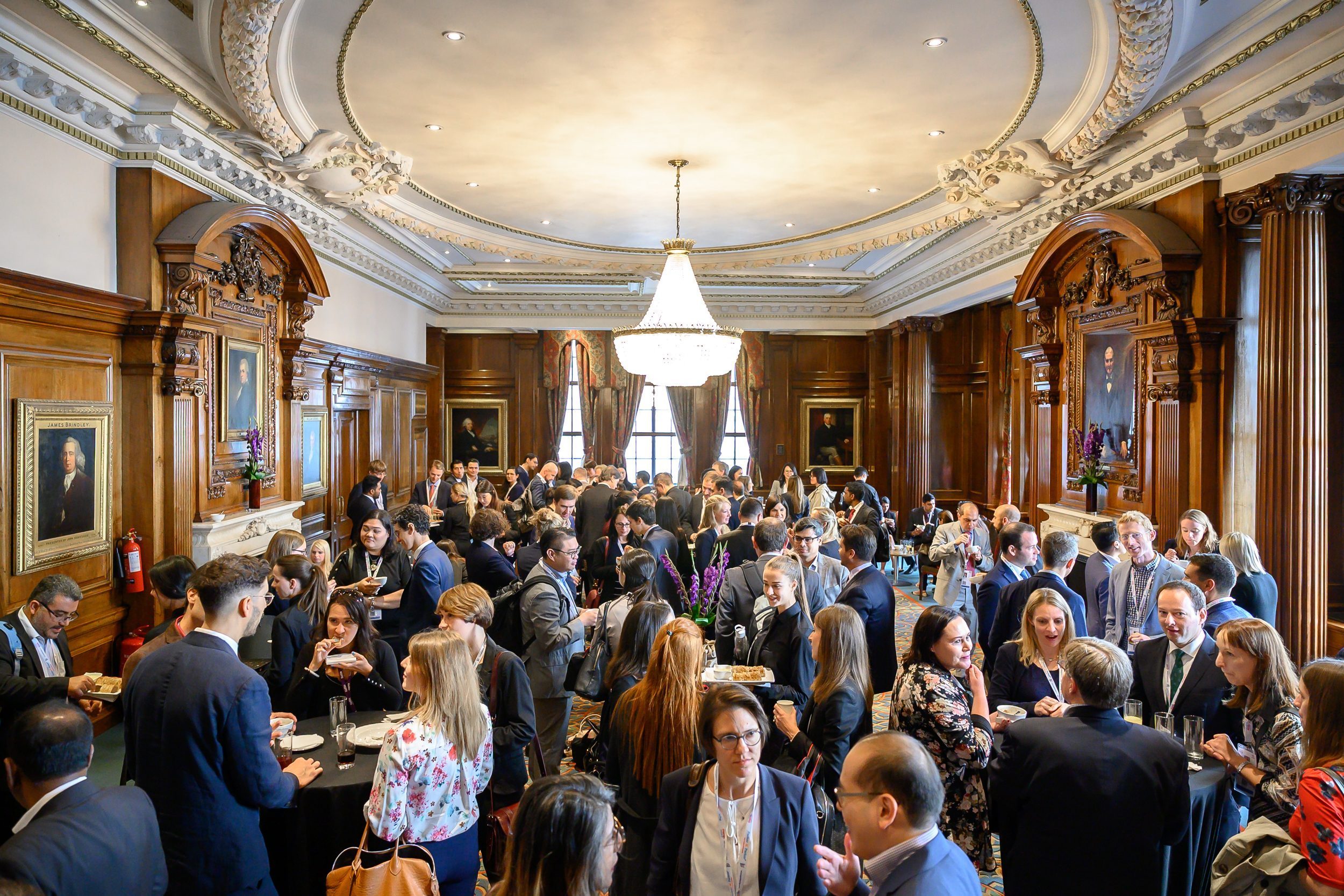
Young AIPPI Summit 2022
In June 2022, AIPPI held the first Young AIPPI Members Summit online with global participation of young members and speakers. Young practitioners covered the topics of the Metaverse, licencing frameworks, life sciences inventions and leadership in the digital age. A great success to be continued.
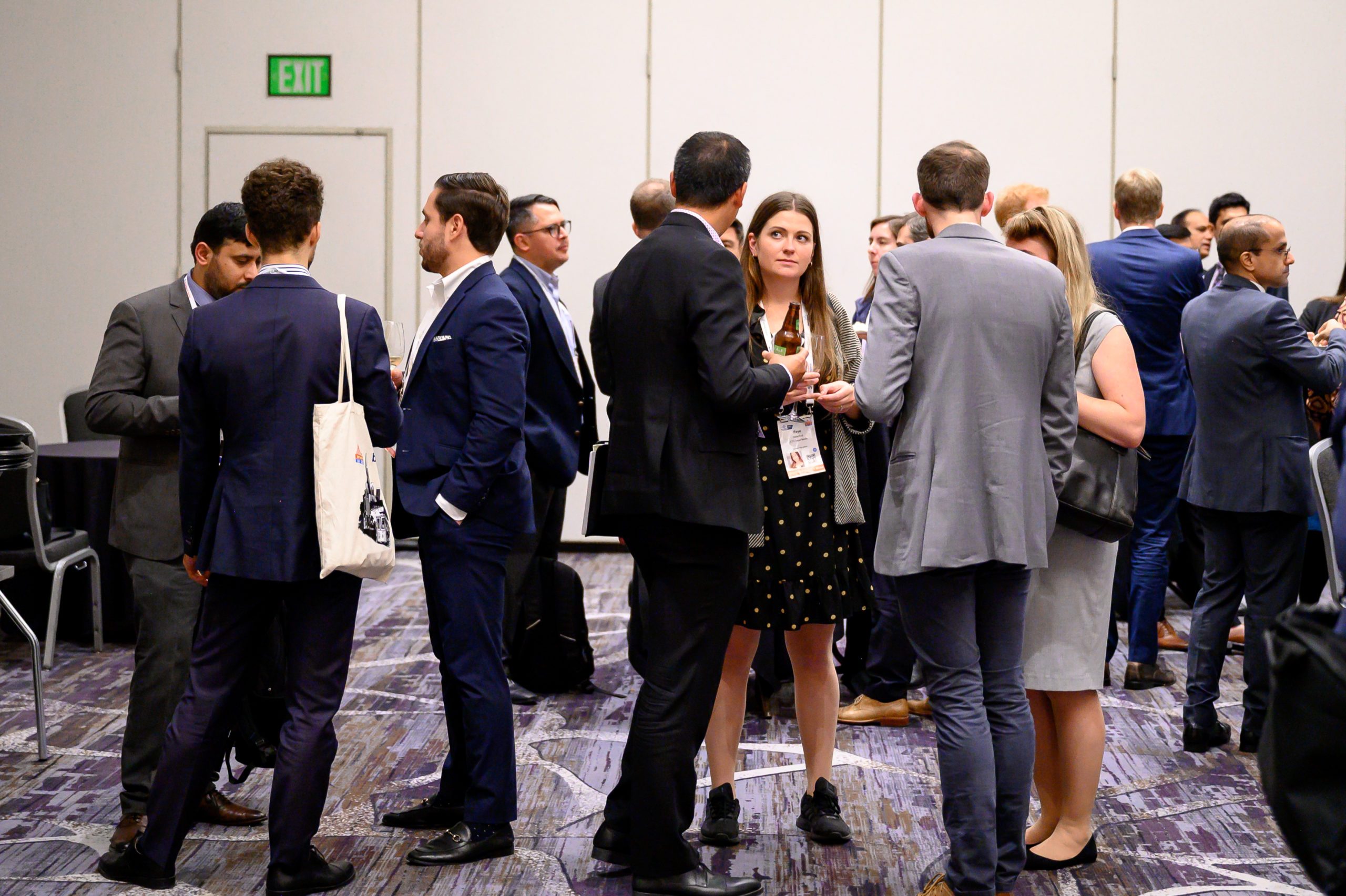
Best of Young AIPPI Forum October 2021
The Resilient Professional is an interactive virtual seminar that addressed some of the challenges faced by young AIPPI members when balancing the demands and expectations of their work environments with their own circumstances and personal aspirations.
Set against the background of the pandemic and the so-called new normal, the session offered participants practical tools to address these challenges and enhance their resilience when undertaking this balancing act.
As with previous YAF sessions, participants had the invaluable chance to meet other young members and make new connections through the networking opportunity of facilitated smaller group activities and discussions during the seminar.
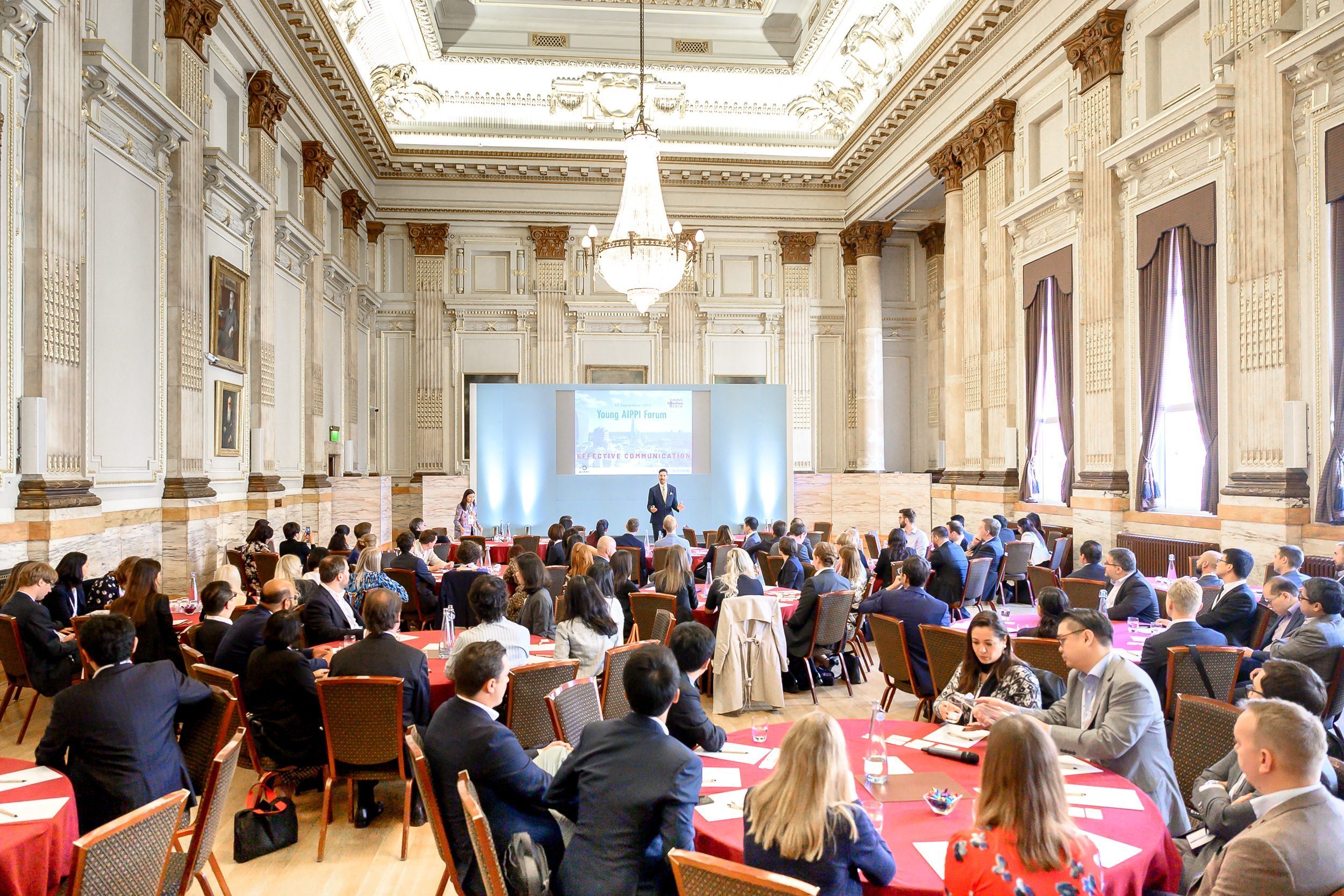
Best of the Young AIPPI Forum 2020
Who we are and what we do
Founded in 1897, AIPPI has adopted many Resolutions. Its annual commitment to a scientifically strict resolution process—using the expertise of about 8,000 IP professionals from very diverse geographical and cultural backgrounds as well as different legal traditions to advance the cause of IP rights for everyone—makes the association unique.
At the 2024 AIPPI World Congress in Hangzhou, four Resolutions were adopted. You can read the full text of each one by clicking on the respective link below.
Please note that all AIPPI Resolutions, as well as thousands of other IP-related documents, can also be accessed in the AIPPI Library.
2024 Resolutions
Patents
Harmonisation of disclosure requirements and consequences of non-compliance
Trade Marks
Conflicts between composite trade marks including non-distinctive elements
Copyright
Defence of parody in copyright
General
Unjustified Allegations of Infringement of Intellectual Property (“IP”) Rights
2024-25 Study Questions
At the 2024 AIPPI World Congress in Hangzhou, the Reporter General team introduced the Study Questions selected by AIPPI’s Executive Committee for consideration during the 2025 AIPPI World Congress in Yokohama.
The 2024-2025 Study Questions are:
- Patents – Compulsory licensing
- Trade Marks – Exhaustion of trade mark rights
- Copyright/Design – AI & copyright
- General – Preliminary Injunctions: Requirements for compensating damage suffered by Defendant
This video explains the process from AIPPI Study Questions to AIPPI Resolutions.
Learn about how the Study Questions are chosen each year, and how they are worked on by different groups to become draft Resolutions to be voted on at the AIPPI World Congress.
Protocol For Development Of A Resolution Derived From A Study Question
“An inventor protected everywhere and protected everywhere in the same manner, what a beautiful dream!
— Eugéne POUILLET, first president of AIPPI, speaking at the AIPPI constitutive meeting in Brussels on May 8, 1897.
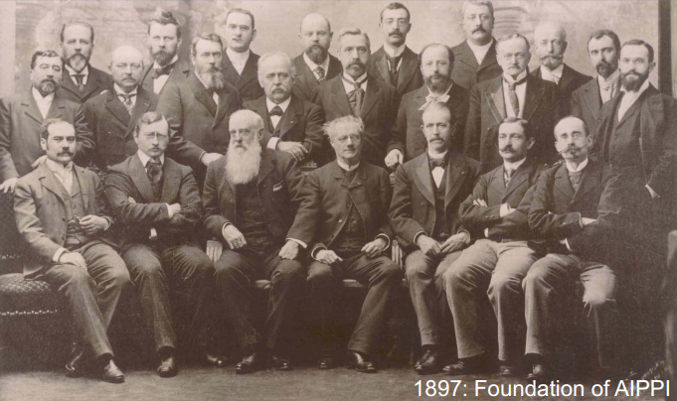 The AIPPI founders in 1897
The AIPPI founders in 1897
“Let us today lay down the bases of an association which, begun in Brussels by a few men of goodwill, will gradually extend to cover the whole earth and, having become great and powerful, will always remember with gratitude the cradle from which it came.”
— Eugéne POUILLET, 1897.
AIPPI’s history
AIPPI dates back to 1897, following the signature of the Paris Convention for the Protection of Industrial Property in 1883. Following the initiative of leading legal scientists and practitioners, a founding meeting was held in Brussels on May 8, 1897 and in October 1897 the first Congress was convened in Vienna, with subsequent festivities in Budapest. Congresses were held annually in the early years, later alternating with “Reunions”, until the outbreak of the First World War forced an interruption in 1914.
The revival of the Association took place in 1925. Under the leadership of Swiss Patent Attorney, Eugen Blum, the centre of gravity of AIPPI moved to Switzerland. As a consequence of the Second World War, the activities of the Association suffered a second interruption from 1938 to 1946.
The development of AIPPI to its present form has been a continual one. From its roots in Western Europe, it has become a truly international Association, encompassing Eastern European countries, North, South and Central America, virtually all of Asia (including large National Groups in China, Japan and South Korea), Australia, New Zealand and much of Africa.
In its long history, AIPPI has adopted more than 700 Resolutions and Reports. The presentation of these Resolutions and Reports to International Governmental Organizations, in particular WIPO, has contributed considerably to the development, improvement and harmonisation of the international protection of IP.
Did you know?
Eugéne Pouillet, the first AIPPI President, at the same time was also President of the International Literary and Artistic Association (ALAI), a body founded by the famous author Victor Hugo in 1878 to promote international recognition of legal protection of authors for their intellectual work. Pouillet held the ALAI presidency from 1890–1905.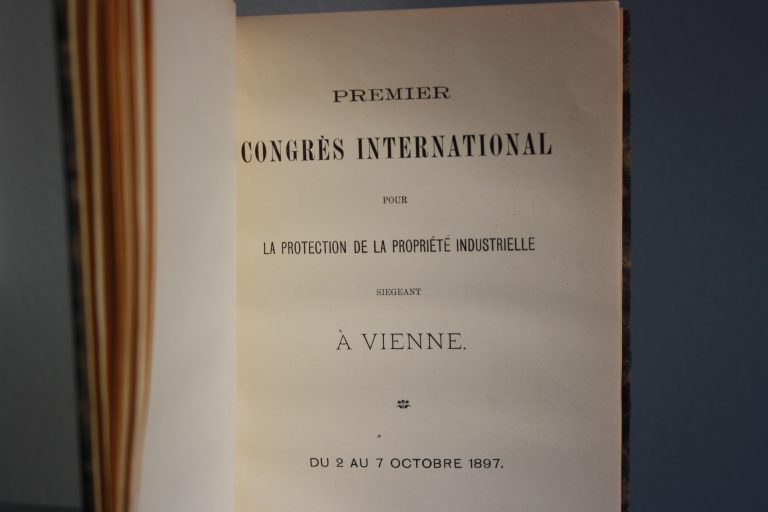 Congress report of the first ever AIPPI Congress held in Vienna in October 1897
Congress report of the first ever AIPPI Congress held in Vienna in October 1897
AIPPI Strategy 2024-26
AIPPI worked within the framework of its Strategy 2021-2023 with great success and many tangible results on specific items. While the level of fulfilment is considered high, items for further work are identified and incorporated in the updated Strategy 2024-2026. This evolutionary framework reflects the fast-moving IP world we live and work in.
In the following, this document summarises AIPPI’s strategic objectives of the 2024-2026 timeframe.
AIPPI’s World Congresses have historically provided a valuable forum for members to discuss legal developments, IP practice management, and technological impacts. AIPPI plans to continue occasional online discussions, focusing on contemporary practice management issues, including adapting to technology and automation in areas like social listening and global prosecution platforms.
These ongoing discussions aim to keep AIPPI members connected between our annual World Congresses. AIPPI is ready to offer commentary on ethical considerations, such as litigation funding arrangements and also share best practices in areas such as alternative dispute resolutions (ADR) including mediation and arbitration. Recognising the importance of addressing modern challenges, online forums and World Congress discussions serve as crucial tools for consensus-building on these vital topics.
Additionally, AIPPI remains open to establishing new Standing Committees based on member interest and emerging themes in the intellectual property landscape. One such Standing Committee (dedicated to Plant Varieties) was in fact established in October 2023, and we look forward to establishing more. This commitment underscores the organisation’s dedication to staying at the forefront of IP developments and fostering collaboration among its members.
AIPPI places significant emphasis on the correlation between intellectual property and the development of today’s society, as exemplified in the UN Sustainable Development Goals (SDGs) especially SDGs 9 (industry, innovation, and infrastructure), 11 (sustainable cities and communities), 15 (life on land) and 17 (partnerships for the goals). AIPPI has a specific IP and Sustainability (formerly called “Greentech”) Standing Committee, but the above goals are, in fact, promoted in the work of most, if not all, of AIPPI’s 26 Standing Committees. This is because innovation – and the protection of innovation, which is the core of AIPPI – is an absolute key element in achieving sustainable development. Of course, it is not for AIPPI to achieve these goals but AIPPI promotes a legislative framework that encourages and enables research, development and product innovation that ultimately then help achieve these development goals.
For example, it is an objective of AIPPI’s new Standing Committee on Plant Variety Rights to promote innovation in agriculture, the objective of which is more efficient (and therefore also more sustainable) agriculture.
For more than a century, AIPPI has aimed to harmonise IP laws to establish a consistent and predictable legal environment, particularly beneficial for international businesses. Despite the success, modern challenges persist, that traditional legal frameworks did not in the past fully address, including:
- Protecting intellectual creativity in online and streaming distribution of music and video content.
- Protecting intellectual creativity and assets in connection with the assembly and creation of large data-driven AI systems.
- Identifying IP protection mechanisms for e-commerce platforms – and also mechanisms for safe harbours from liability for platforms.
AIPPI seeks to enhance laws for more effective protection against complexities, cost, and barriers. Traditional approaches need to be stretched to some extent, as is evident in copyright laws strained by new media protection needs. For instance, copyright laws, originally designed centuries ago, face challenges in adapting to the protection of new media works, resulting in increased complexities and barriers to effective protection.
Similarly, safeguarding large data volumes in AI systems using conventional patents, copyrights, and database rights can be intricate. The mundane nature of binary data and the automated generation of datasets through neural network training pose difficulties in identifying protectable creative input. AIPPI emphasises the importance of aligning IP protection with the identification of creative input rather than adapting specific forms of IP to various aspects of the creation’s result.
Of course, the harmonisation and improvement of IP laws and systems in different jurisdictions is a mandate for AIPPI with continuing relevance. With a continuous stream of different legal and procedural developments and court decisions, AIPPI needs to look at and address real and potential problems so as to propose harmonised solutions and ultimately new proposals for the improvement of IP laws.
AIPPI’s commitment to addressing these challenges is reflected in its approach to Study Questions and adopted Resolutions, ensuring that these endeavours focus on cutting-edge IP issues at the forefront of industry concerns.
AIPPI has consistently held a prominent position in the IP sector, generating impactful Resolutions distributed and advocated globally. However, there are further opportunities to advocate AIPPI’s positions, including through amicus curiae submissions/neutral third-party interventions. Interventions are not always possible, and not all courts accept third-party observations. But this is a useful activity for AIPPI since new laws can be developed not only through the codification of laws following a Resolution, but also as a result of advocating a position and the development of case law that reflects AIPPI’s positions.
Standing Committees, including the operational Amicus Brief Committee, actively produce amicus briefs and interventions together with the coordination of the Reporter General Team.
More recently, AIPPI has developed a stronger presence in advocating for appropriate legal improvements through WIPO’s proposals for a new Design Law Treaty and a new treaty on GRTK. Further, AIPPI has also participated in the new Hague Convention proposals for intellectual property enforcement.
AIPPI will further improve its representation at WIPO, EUIPO, EPO, Group B+, national authorities etc. on a substantive level to improve dissemination of AIPPI Resolutions and positions. Maintaining and creating new opportunities as observer status in governmental bodies, AIPPI aims to continue contributing significantly to treaty discussions and harmonisation.
AIPPI has embraced more popular and efficient formats to enhance our online presence and dissemination of information. This includes a more active use of social media, allowing for rapid response messaging on developing topics.
Our engagement on social media aims to foster interaction within the community and create substantial value. In addition to this, the AIPPI Newsletter and the National and Regional Groups Activity Reports serve as dedicated channels for sharing detailed articles and contributions, including insights and positions from Standing Committees. These formats are designed to deepen knowledge and inspire members on various activities.
The electronic content distribution is positioned to also educate the public on intellectual property, innovation, and cultural development and to extend AIPPI’s influence beyond our membership and even outside the traditional sphere of IP stakeholders. While there are inherent limits to our influence outside the IP field, there exists an opportunity for AIPPI to contribute more substantially, for instance, by collaborating with press organisations seeking input on IP-related news items.
AIPPI must consistently evolve and expand its array of activities. This forward-looking approach involves:
- Hosting events addressing internationally significant hot topics and providing updates on developments.
- Facilitating thought-provoking presentations to stimulate discussions in National and Regional Groups on various aspects of IP law.
- Collaborating with sister organisations in regions where AIPPI has limited exposure, including Africa and Latin America, and continuing initiatives like the Scan the Globe webinar series.
- Organising smaller yet more frequent regional meetings, accommodating those who may not be able to travel to our World Congress, including establishing regional mid-year meetings like Spring Meetings.
These initiatives enhance AIPPI’s global engagement, offering members the opportunity to connect with a broader audience. It is crucial to note that while these additional events are valuable, the annual World Congress remains a focal point, featuring international coverage and AIPPI’s distinctive blend of content, including Study Questions, Resolutions, and in-depth debates. Regular webinars complement these efforts by allowing members to stay connected on an international level between the World Congresses.
Learning from each other is very important for the continuity of an organisation such as AIPPI, enabling the creation and utilisation of shared intellectual capacity. Any opportunity that strengthens communication nurtures the sense of belonging that is essential considering evolving interaction among and with young generations. Personal mentoring not only provides professional knowledge but also improves our work from different perspectives and the level of our entire membership.
